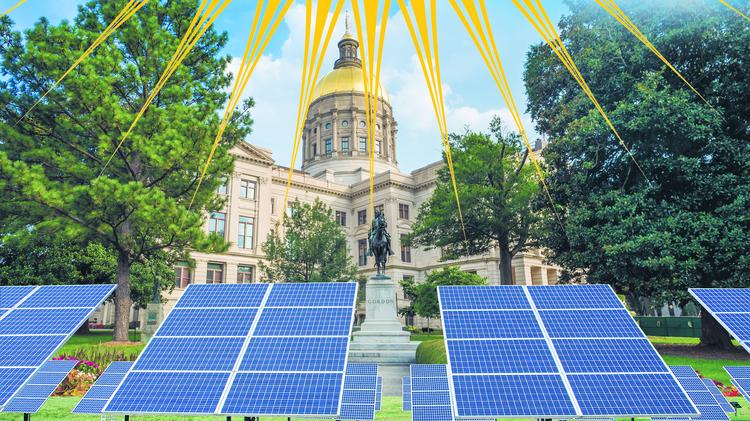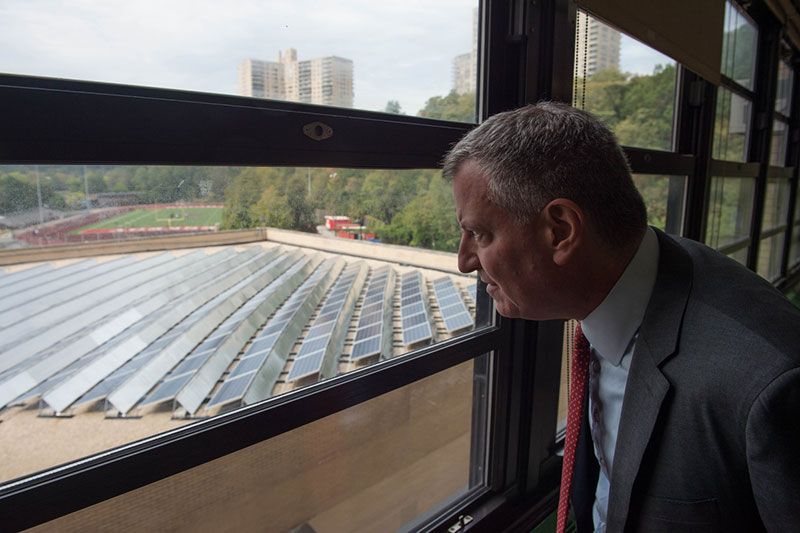GSEA, GaSU, Georgia Power, and even me are quoted in a Georgia
Trend feature about solar power in Georgia.
As Mahatma Gandhi is alleged to have said when asked his opinion
of western civilization: “that would be a good idea!”
Jerry Grillo wrote for Georgia Trend July 2013,
Sun Dancing:
As Georgia’s solar capacity shoots skyward, a new state utility is proposed,
 It’s the sun, the sol of our solar system, to which everything that
lives and moves, including the wind, owes its existence. Without the
sun, there is no us, no Earth. You can’t miss it. It’s the biggest
thing in the sky, the biggest thing for at least 24 trillion miles,
and at 4.5 billion years old it is middle-aged and remains the most
abundant source of power between here and Alpha Centauri, zapping
our planet every minute with more energy than humanity can consume
in a year.
It’s the sun, the sol of our solar system, to which everything that
lives and moves, including the wind, owes its existence. Without the
sun, there is no us, no Earth. You can’t miss it. It’s the biggest
thing in the sky, the biggest thing for at least 24 trillion miles,
and at 4.5 billion years old it is middle-aged and remains the most
abundant source of power between here and Alpha Centauri, zapping
our planet every minute with more energy than humanity can consume
in a year.
The best thing is, the sun is free. Still, for most of those eons,
capturing the sun’s energy for human consumption has been like
picking crops with a catcher’s mitt.
But over the past few years, photovoltaic technology
(“photo” for light, “voltaic” meaning
electricity) has gotten way more efficient, and the previously
prohibitive price has fallen dramatically, setting the stage for
what’s happening now in Georgia: Solar deployment and interest are
increasing dramatically.
“This is a very dynamic time for solar energy, and it
demonstrates a pent-up demand and interest in solar energy for
Georgia,” says Mark Bell, chair of the Georgia Solar Energy
Association (GSEA) and president of Atlanta-based Empower Energy
Tech-nology. “There’s a great potential here for real,
sustainable economic development.”
 Grillo was pretty thorough in getting a range of points of view
(with the notable exception of
Georgia Sierra Club),
and
the whole article
is well worth reading.
Grillo was pretty thorough in getting a range of points of view
(with the notable exception of
Georgia Sierra Club),
and
the whole article
is well worth reading.
Among the things I told Grillo back at the beginning of May,
I’m especially glad he included this:
Continue reading →
 By Backing solar power
in Florida, are Duke, Southern Company, TECO, and even FPL’s parent NextEra
hedging their bets, or finally realizing where the future is?
By Backing solar power
in Florida, are Duke, Southern Company, TECO, and even FPL’s parent NextEra
hedging their bets, or finally realizing where the future is?









.jpg)
